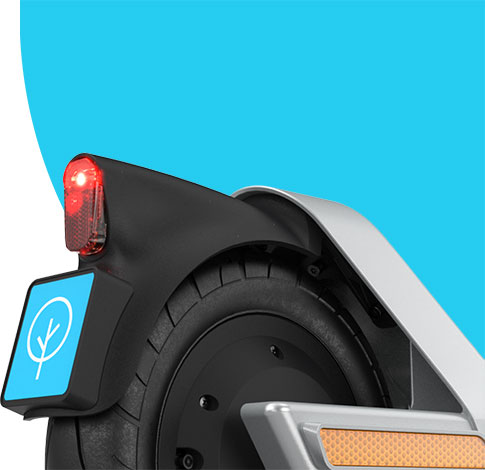Parking and the City

If you walk outside your front door in the morning or out of your downtown office building at the end of the day, do you ever notice the abundance of parked cars lining your street?
Fulfilling Bird’s mission to make cities more livable and human-centric doesn’t stop when the ride ends. While parking might not be something you think about (unless you are frustrated with trying to find a place to park your car), parking is a critical element of achieving our mission and is something we obsess about each day at Bird – where to park, where not to park, how to park, how to make parking easy, how to make parking seamless in communities, the thinking is endless!
Why obsess about parking?
Today, cities dedicate an enormous amount of space to free (or cheap) car storage or parking for private vehicles since the average car spends 95% of its life parked. In fact, there are about eight spots for every car in America, or enough space to fill Vermont and Connecticut.
At the same time, the ubiquity of car parking leads to unequal conceptions of “clutter”; many are quick to notice e-scooters when several are present (mostly because they are a new sight!), while at the same time being inured to a block face full of parked cars.
To replace cars and better accommodate sustainable, human-scaled modes of transportation, cities must rethink parking. With 10 Birds fitting in the average car parking space, e-scooters utilize urban space more efficiently than cars, and are challenging an unspoken status quo about parking areas in cities: they are meant for cars.
Finding a solution
Already some cities we operate in—including Kansas City and Santa Monica—are ahead of the curve, and have increased the amount of dedicated on-street parking for clean micro-mobility devices. Paris has also announced its intention to create parking spaces for scooters, with survey results showing 67% of Parisians think scooters should be parked in the street or at bike racks.
To complement these efforts and ultimately provide a multi-faceted solution to parking, Bird offers extensive education on riding and parking etiquette and has developed a suite of parking tools. These tools enable cities to accommodate diverse vehicles into their transportation networks today while balancing the flexibility of the dockless model that has enabled it to achieve wide adoption. In early testing, we saw a 46% boost in parking compliance from simply surfacing these parking locations in our app.
Our newest parking solution builds on this foundation to nudge riders to park in the spaces that cities reclaimed for micro-mobility. This new in-app parking experience bridges the divide between technology and infrastructure by directing riders to these parking spaces using visual reference points, real-time navigation, and GPS enabled alerts informing them once they are within an approved parking space. For example, a tourist looking to visit the Louvre in Paris, can locate appropriate on-street e-scooter parking spaces within a block of the museum, see the address and images of the space, and get turn-by-turn directions to their destination.
This experience can also be further enhanced with incentives, such as credits towards future rides for good parking behavior; and Bird’s advanced no-parking zones that leverage geo-fencing technology to block riders from parking in restricted areas.
While allocating space in cities and creating product solutions is a step in the right direction, there is much more work to be done to create scalable, long-lasting solutions to the parking issues cities face today. At Bird, we are dedicated to building these solutions with cities, and finding innovative ways to solve century-old global issues.
The title of this post is derived from the book “Parking and the City” authored by Donald Shoup.
